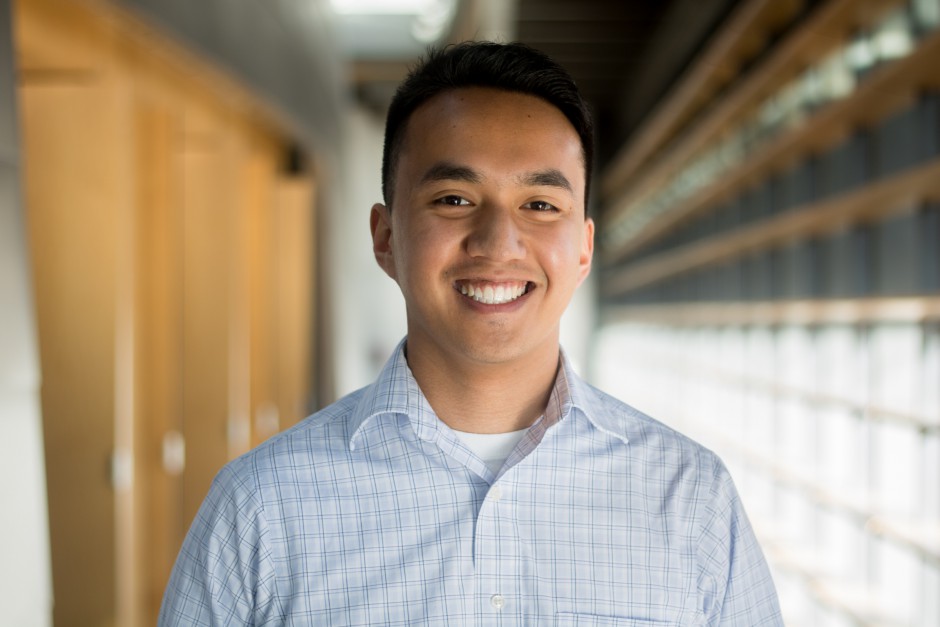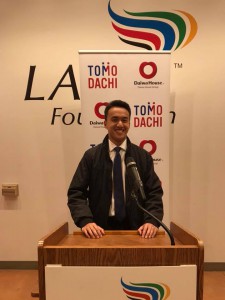Q&A with TOMODACHI Program Participants and TOMODACHI Alumni: Jess Juanich

Jess Juanich is an alumnus of the TOMODACHI Daiwa House Student Leadership Conference VI held in Los Angeles in 2018. He is currently pursuing a Master of Public Administration (MPA) at the University of Washington, building on his academic background in public affairs and political science while working as a content creator.
His interest in public policy along with his leadership experience working with the student government of Seattle University and organizations such as the Japanese American Citizens League has made him passionate about diversity and inclusion.
His podcast, Pinoys vs. the World, which he launched in April 2021, is an extension of that passion. The podcast provides a platform for underrepresented voices and an opportunity for him and his co-host to share their unique perspective on a multitude of current issues as Filipino Americans.
This interview was conducted virtually on August 1, 2021, by 2021 TOMODACHI Alumni Intern Momoko Tajima, based out of Fukuoka, Japan.
Q1: What was your motivation for joining the TOMODACHI Daiwa House Student Leadership Conference?
Many of my extracurricular activities in college centered around U.S.-Japan relations. I was an active member of the Seattle chapter of the Japanese American Citizens League, and I did a lot of youth programming and leadership activities, all of which made me interested in applying for the program. I also went to Japan during the summer of 2017 to teach English in high schools across Tokyo, Kyoto, Osaka, and Kagoshima.
Given my experience, I thought that the 2018 leadership conference would be a good experience for me to apply for.
Q2: What was the most memorable aspect of the conference?
Many of the activities we engaged in focused on different areas of policy, exploring things like how we could strengthen U.S.-Japan relations. We also had the opportunity to hear from guest speakers from a variety of different fields ranging from community development to technology, but the attendees are what I remember the most. Everyone was very kind and welcoming. I made a lot of friends, many of whom I am still friends with to this day. It was a very fun and rewarding experience.
Q3: What does TOMODACHI mean to you?
For me, TOMODACHI definitely means connections. The program gave me the opportunity to develop many long-lasting friendships. Regardless of whether or not those connections are personal or professional, the connections and relationships that you build will help you get to where you want to go. From a career standpoint, my connections with different alumni and leaders have helped me solidify both my interest in public policy and what I want to do.

Jess at the TOMODACHI Daiwa House Student Leadership Conference VI
Q4: Did the program impact your leadership style in any way?
The program definitely strengthened my communication as a leader. I got a lot out of the soft skills the different speakers spoke about, even though I’m not necessarily aligned with either business or tech, for example.
Listening to them taught me that it is important to listen critically and think before you speak. It’s also important to hone your ability to look at all sides of a problem, which will enable you to develop different ways to address an issue. The ability to incorporate these skills into different leadership or team projects in the different facets of my life has been very helpful.
Q5: You started the podcast Pinoys vs. the World in April. What do you hope to achieve with the podcast?
I identify as a Filipino American and a first-generation college student. My friend Harald Hyllseth who co-hosts the podcast with me identifies as Filipino/Norweigian American and Indigenous Native American. In the United States, a lot of mainstream media doesn’t necessarily reflect the experiences of people of color or people of different backgrounds.
A lot of the guests we bring on [the podcast] represent communities that have been underrepresented in the past. They provide our listeners with the opportunity to hear a different voice. Providing a space for them to share their ideas with our audience is really important.
We made the podcast to establish a platform to tell our own stories through our lived experiences and provide that representation that we felt was lacking in the media, entertainment, and policy spaces respectively. Historically, there hasn’t been anyone who has looked like us to share our stories. Being able to share our interests together and the ability to connect how those interests connect to our own identities was really important to us. The main aim of the podcast was to continue to create a platform for both of us to share our stories and engage with the community.
Q6: Can you tell us more about some of the things you have been doing to promote diversity?
During my junior year, I worked together with our university vice president of diversity and inclusion to co-host and facilitate a space for students to talk about how we can think about diversity and inclusion through our education, known as Student Mission Day at Seattle University.
We invited a guest speaker to the event, Dr. Michael Eric Dyson. At the time, he was a professor at Georgetown University who specialized in race studies and talking about issues such as diversity and inclusion. He really connected with the students in terms of the questions that we brought up and how we wanted to think about some ways that students can advocate for more diverse and inclusive spaces, whether it’s through accommodations, learning, or extracurricular activities. We discussed how we could provide and advocate for more of that. That was a fun experience.
Q7: Do you have any advice for those who want to build a diverse society for future generations?
I think being able to continue to be resilient through learning is key to creating a diverse society. Keep an open mind. Listen to things that are of interest to you. Take what you learn and turn it into action. I think being involved in different activities or events that align with your values or what you want to learn helps to create a diverse society because you’re building a community that will continue to support your own growth. Through that growth, you’ll learn from different people and encounter different ideas and values that may clash with yours. Learning how to live in harmony with those differences and overcome any challenges that may come your way is also key to doing our part.


